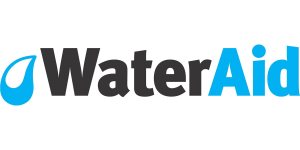Dear All,
25 May 2015, Dakar, Senegal – As the 4th AfricaSan conference begins in Dakar, Senegal, today, WaterAid has called on African nations to make clear and ambitious targets to deliver sanitation for all by 2030. African leaders must prioritise sanitation from the highest decision making levels and support the proposed UN Sustainable Development Goal to ensure water and sanitation for all by 2030, said the international development agency, WaterAid, as Dakar welcomed delegates to the AfricaSan 4 conference.
Download the full press release here
WATERAID PRESS RELEASE
25 May 2015 —
DAKAR — African leaders must prioritise sanitation from the highest decision making levels and support the proposed UN Sustainable Development Goal to ensure water and sanitation for all by 2030, said the international development agency WaterAid as Dakar welcomed delegates to the AfricaSan 4 conference.
The much-anticipated conference, which was postponed for 8 months due to the Ebola outbreak, runs from 25 – 27 May 2015 and aims to build momentum to address the sanitation crisis across the African continent.
The conference comes at a critical time as UN member nations negotiate the final stages of the new Sustainable Development Goals, which will come into effect next year and determine the shape of development to 2030.
Currently more than 70% of people in Sub-Saharan Africa lack access to sanitation, and a quarter of the population practices open defecation. Every year 400,000 children under five die in Africa because of diseases linked to poor sanitation – almost four times as many as in the rest of the world combined.
To support monitoring and engagement, WaterAid has just unveiled its redesigned WASHWatch reporting system to track Africa’s commitment to bring water and sanitation to its citizens and support universal access for all.
The centrepiece of WASHWatch is a new interactive world map of water and sanitation, which shows predicted progress by 2030 – the target date proposed for the new UN Sustainable Development Goals for achieving basic toilets for all.
WaterAid’s new WASH Map demonstrates that despite assurances from African nations that sanitation is a priority; by 2030 more than 66% of the African population will still be living without adequate sanitation – a reduction of only 4% over the next fifteen years.
Political leadership is vital to accelerate progress in financing, monitoring and capacity development, and ensure that no one is left behind on the road to 2030.
An additional 50 million people a year will need to be provided with access to safe, sanitary toilets if Africa is to meet its target.
Mariame Dem, WaterAid’s West Africa Head of Region, said:
“Not enough progress has been made on sanitation and it is time for African leaders to honour their commitments. Some 53.3 million Africans must be reached each year if we are to reach everyone in Sub-Saharan Africa with basic, hygienic toilets by 2030.
“This is an immense undertaking, particularly in Africa where the lack of sanitation is so widespread, and it cannot be achieved unless African leaders commit with political will and financing to prioritise sanitation.
“We are calling on the African ministers attending AfricaSan 4 to put their promises into action. Their people need dedicated leaders who are willing to rally their resources and do everything in their power to reach everyone in their nations. Ambitious targets alone are not enough.”
Poor sanitation has a terrible impact on both the health and economies of African nations, which lose on average between 1% and 2.5% of their GDP to lost productivity and medical costs associated with treating illnesses linked to dirty water and poor sanitation.
Access to clean water, basic sanitation and good hygiene practices are basic human rights. They free women and children from the chore of fetching water and the dangers associated with open defecation to allow them to work or attend school, and are critical to good health
